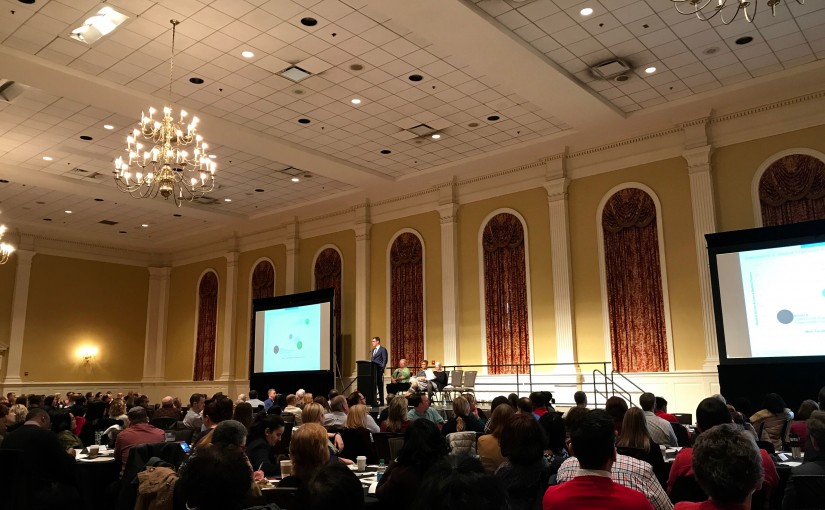By Audrey Decker
For The Diamondback
Members of the University of Maryland community reviewed a campuswide survey Wednesday to discuss their workplace environment.
About 300 faculty, staff and students engaged in an open forum in Stamp Student Union’s Colony Ballroom to discuss the results of the Thriving Workplace survey, which was sent to 11,232 university faculty and staff and received 7,326 responses, according to the survey report.
This is the second year this university has conducted the Thriving Workplace survey, said Adrienne Wicker, the associate director for this university’s Center for Leadership and Organizational Change.
The Thriving Workplace initiative aims to create a “thriving work environment and a culture of engagement and inclusion” for university employees, according to the office of the president’s website.
The survey was sent out in October and designed to give employees a platform to voice their experiences in the workplace, according to the office of the president’s website. Participants were asked to respond to questions with a rating of one to five, with one being “strongly disagree” and five being “strongly agree.”
Participants responded to a general question about their satisfaction with working for this university, as well as 24 questions regarding their happiness and thoughts about their workplace environment. The most positive response was for knowing expectations at work, as 83 percent of employees said they knew what was expected of them.
However, when asked if they had a best friend at work, 34 percent said they did not. In addition, 25 percent of respondents said they have not been asked about their progress in the workplace over the past six months.
Laura Scott, the director of the Center for Leadership and Organizational Change, said the university needs to make efforts to improve engagement. The survey gauged that 64 percent of respondents are not engaged at work, with 16 percent actively disengaged.
In efforts to promote inclusion and engagement and hear from a wide audience, Wicker said this survey was distributed in various languages, as well as online and in paper.
The results of the survey come amid a spate of accusations of sexual harassment and misconduct in various fields, including government, the film industry and media throughout America.
Brandon Busteed, a representative from Gallup, said colleges and universities are consistently in the bottom quartile for engagement, when compared to other workplaces around the country.
However, most of the responses to the workplace survey were between satisfactory and very pleased.
“Engagement at work is a fairly high bar. These are the folks that come to work every day really fired up,” Busteed said. “They bring new ideas and energy. … The most important part of this ball game is switching workers to actively disengaged to totally engaged.”
To improve engagement and inclusion, this university should get students involved as well, since they make up such a large segment of the campus population, said Ebony Terrell Shockley, an assistant clinical professor and diversity officer in the teaching and learning, policy and leadership department.
Shockley also said faculty and staff will often have conversations not because they want to, but because they are encouraged to through surveys like these.
“Thriving Workplace, although it has its weaknesses like any other poll, is still a great opportunity to move conversations forward that are coming from the president,” Shockley said.



